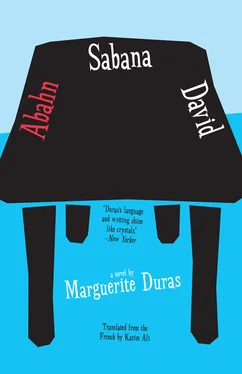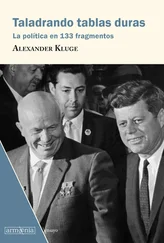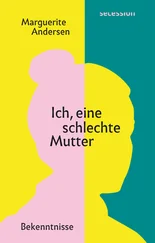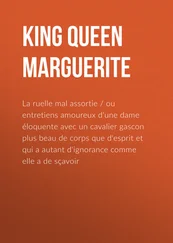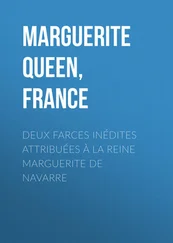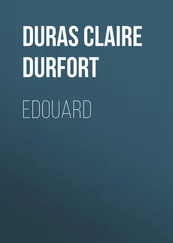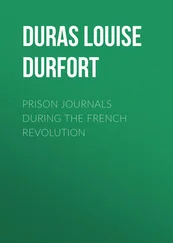“Yes,” said the Jew.
“Every time they each speak of the figures in the journal,” says Sabana.
Silence.
“And they won’t understand,” says Sabana.
“They won’t,” agrees the Jew.
A tight smile stretches across the face of the Jew.
“They will burn your things as well,” says Sabana. “Your furniture, your clothes. They won’t leave anything whole. They’ll destroy the dogs.”
“David’s dogs,” says Abahn. “David’s forest.”
“Yes.”
Silence. Then Sabana rises, goes toward the door to the park.
“It wasn’t interesting, what people were saying in Staadt?”
“It still isn’t,” says the Jew.
“So that’s interesting to whom?” asks Sabana.
“Everyone,” says the Jew.
“To burn it, then?”
“Sure,” says the Jew, “to look at it, as well.”
“And for the ones who said it all, the people of Staadt?”
“No,” says the Jew.
“It’s not interesting for anyone,” says Sabana.
She moans a single word. A brief sob, mournful, low: “David.”
Deep in slumber, David moans at the same time, long, seemingly without end: an unknown dream without a doubt. No one notices the dream.
They are silent.
“There has to be time,” says the Jew.
He points toward David.
“So David can. . David, David. .”
He does not finish his sentence.
•
It is Abahn who takes up the charred papers lying on the table. He reads:
“We reached the eighth floor on January 18 th. The walls were not yet built. The wind blew through. Winter was hard. We drank alcohol at all hours. In the evenings, we were drunk. The Portuguese are not used to it, this cold. Three Portuguese at the site died. Five of the Africans froze to death in their room. The Greeks aren’t used to it either. There was one of them in my room and he coughed all the time. My site is number three. At seven in the morning it was less than 12 degrees. We do less work than we could in the summer, the cold cracks the skin of your hands, the cement you poured into the cracks, gray, the morning, cracked skin. Gringo is the head of site number three. Jeanne taught the Portuguese how to write. Gringo said that site number three creates honor for the Party. He sent a list of our names to the city. We petitioned the city. Gringo wrote out the petitions. He said, ‘The conditions of the Portuguese are unacceptable.’ Gringo spoke to the House of the People. He spoke all night to the 22 ndCongress of the House of the People. We were exhausted that evening. So sleepy. At the end of all this, we carried cement, thirty times ten kilos of it. That’s three hundred kilos. Our hands burned from it. From the moment you can’t manage anymore you’re just like the Portuguese.”
In the silence David cries out. “The dogs!” he calls out in his sleep.
The dogs howl in the dark expanse. A single howl.
“Gringo,” says Sabana.
She doesn’t move, she doesn’t take her eyes off the Jew.
The dogs fall silent.
David falls back into his fitful sleep.
“They bark at night whenever someone passes by,” says Abahn.
“No,” says Sabana, “they mark the passage of Gringo.”
She listens intently in the direction of the pathway outside. The Jews are not paying attention.
“He’s looking at you,” she says.
She is listening with her eyes closed.
“He’s alone.”
She listens again in the direction of the road. The Jews are not paying attention.
“He was alone. He’s gone now.”
Silence anew.
“Maybe it was someone else,” says Abahn. “Or it was nothing.”
“In Staadt,” Sabana says, “we recognize every sound. Even Gringo walking past. He came to see.”
•
“Is that all there was to read?” asks Abahn.
The Jew takes some time to respond. “There were some other things about the working conditions.”
They are silent, the three of them, standing apart from one another, unmoving.
“The dogs aren’t barking anymore,” says Sabana.
“We could read,” says the Jew.
“Someone could talk,” says Abahn.
“Or cry,” says Sabana, “for the dogs.”
“They are on the table, under the scorched pages,” says the Jew.
They are, all three of them, caught in the same languor.
“The Realtors Society,” begins Abahn.
He stops. Begins again:
“The Realtors Society was created for three industries. It grew from strong investments. A pharmaceutical company, French. A German company, cellulose. And an American company, tungsten.”
He pauses. Silence.
“Go on,” says the Jew.
“Yes, go on.”
Abahn goes on, with a growing languor:
“The payout, at this level of investment is a strong 52 percent. The legal percentage of payout has been fixed at 27 percent, the legal fees comprise the 25 percent remaining.”
He pauses. Sabana says:
“I knew about the pharmaceutical company.”
“Keep going,” says the Jew.
“The Realtors Society,” continues Abahn, “was built on top of the old cemetery in Staadt. Permits to build were given in four days. The commissioners and three municipal councilmembers were able to raise three and a half million. At this level that sum has tripled.”
He pauses.
“And,” says the Jew.
“The Portuguese,” Abahn continues, “the Portuguese and others paid the syndicate’s tariffs. They were not given the right to vote. They had no right to strike. The foreigners are 70 percent of the workforce, so the company is immune to strike.”
He stops. Closes his eyes.
The Jew says nothing more.
“The most recent contract provides for 12 percent overtime pay past 40 hours, but it has not been honored.”
Pauses.
“The value of untaxed products has already increased 10 percent. For the non-foreign worker the increase is already resolved.”
He pauses.
Abahn pauses and then begins again. His voice is weak:
“So the single major policy issue is the sliding scale of the minimum wage.”
He stops.
•
Abahn still sits at the table as if he were reading from the charred papers.
The Jew takes some steps and then sits against the door to the darkened park. He stays there, on the ground, his head turned toward Sabana, his eyes closed.
Sabana makes the same effort. She rises. She walks with purpose. She turns toward the Jew. She listens. She stands there, near to him, she studies him. She says:
“Turn on the lights. I can’t see you.”
He does not move. Neither does Abahn.
Sabana turns and switches on the light next to the Jews.
She looks from one to the other in the shadowy light that falls across their faces and closed eyes. Then she sees only the Jew. Says:
“I’m looking. I see you.”
Abahn.
“He isn’t thinking anymore.”
The Jew’s eyes are closed. She says:
“No. That’s not right.”
The Jew opens his eyes.
“You’re afraid,” cries Sabana. “Where were you?”
“Here, in front of you,” Abahn says.
“Not him,” she gestures at the other. “Not him.”
The Jew and Sabana regard each other. A tight smile spreads across the Jew’s face.
“One day I’m going to kill myself,” says the Jew.
Sabana’s intense gaze flares blue and then fades.
“It’s for that reason exactly that they want to kill you.”
“Yes,” says Abahn.
Sabana sits next to the Jew. She stays there, next to him, quiet, her eyes open.
They are silent. Both fallen against the walls, looking at nothing.
“The Jews still cannot escape madness and sorrow,” says Abahn.
He pauses. He speaks with concerted effort:
“Sometimes it’s so difficult for them to live.”
Читать дальше
